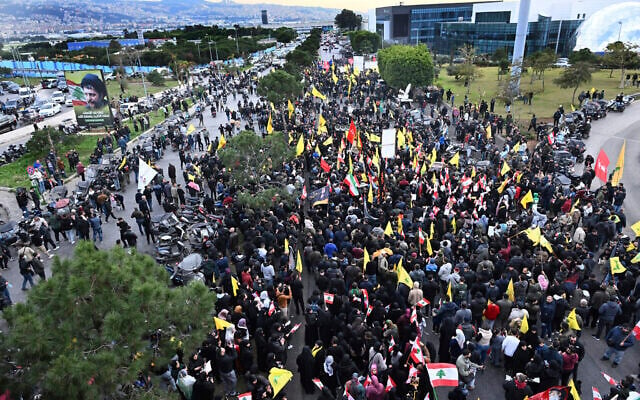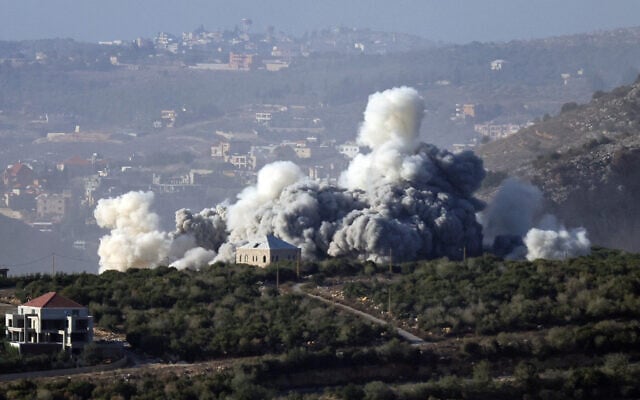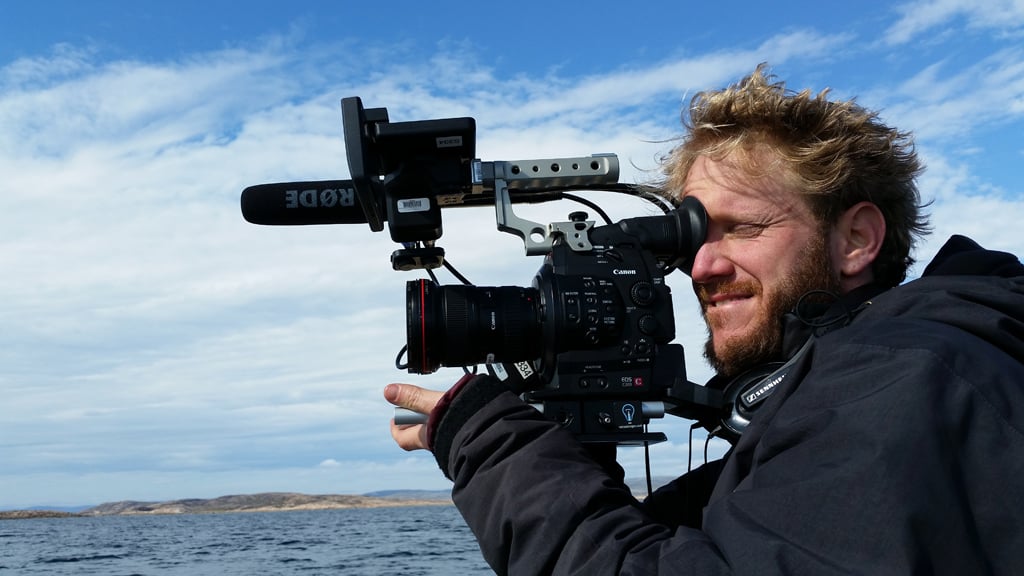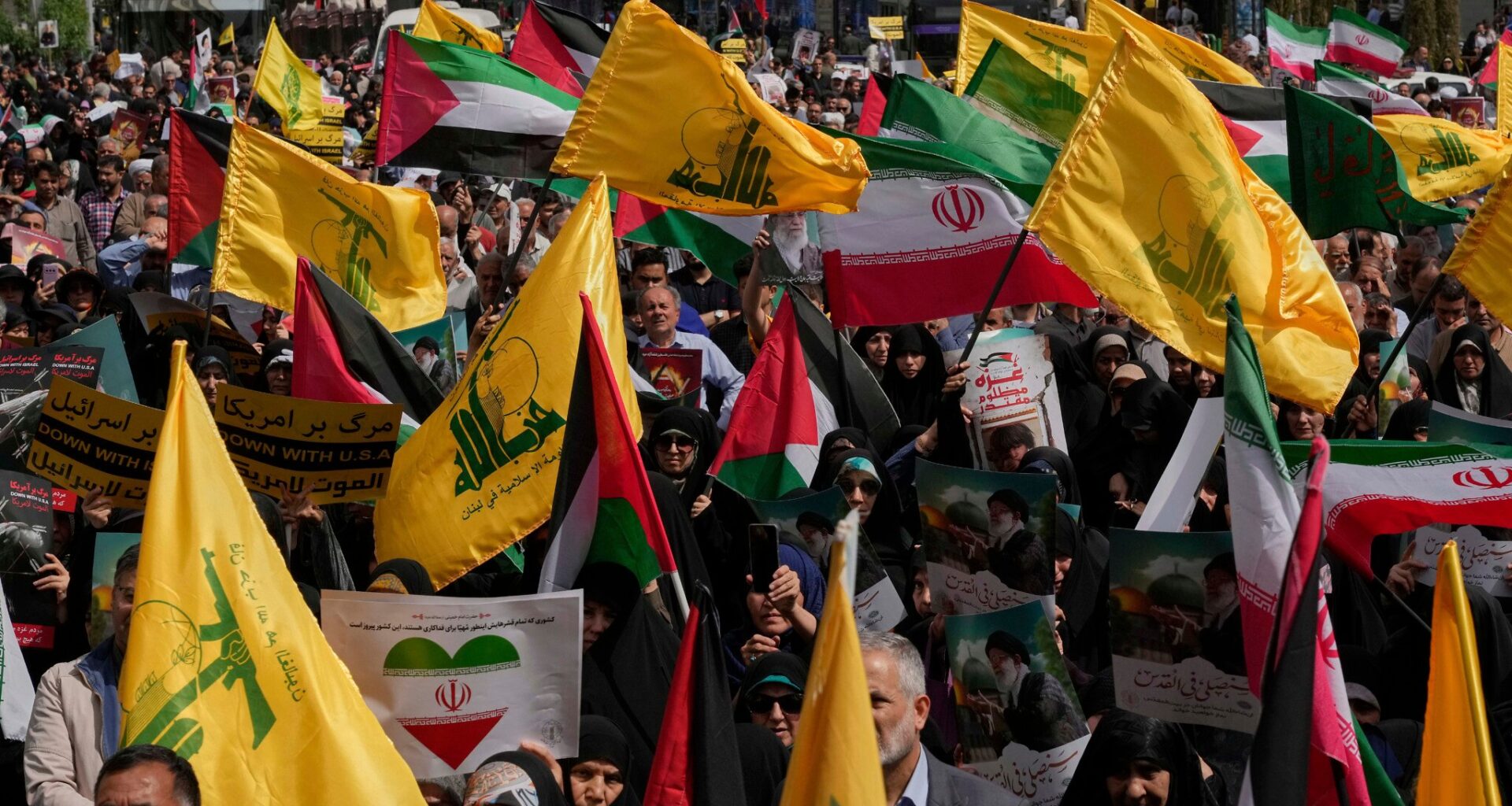The Hezbollah terror group in Lebanon has received hundreds of millions of dollars from Iran over the past year via money laundering operations in Dubai, The Wall Street Journal reported Thursday, after Tehran moved away from the smuggling routes it had previously used due to complications created by the fall of the Assad regime in Syria last December.
The report, which cited officials familiar with the matter, revealed that Iran has been funding Hezbollah’s efforts to rebuild its forces after much of the terror group and its leadership was wiped out in a year-long war with Israel, which ended in a truce last November.
To aid these efforts, the WSJ reported, Iran has been funneling money earned through oil sales to Hezbollah from within the United Arab Emirates, which has diplomatic relations with Israel.
The money from oil sales is moved through Iran-linked exchange shops and private companies, as well as to businessmen and couriers, the WSJ said. It is then transferred to Lebanon through the informal and centuries-old transfer system known as Hawala, in which individuals, rather than banks, act as brokers for money transfers. The system is widely used in Muslim countries, but is not limited to them.
Approached for comment by the WSJ, an unnamed Emirati official said the country was opposed to such activities being carried out in its territory, and that officials were working with international partners to put a stop to it.
Get The Times of Israel’s Daily Edition
by email and never miss our top stories
By signing up, you agree to the terms
Lebanon has also taken a series of steps to try to put a stop to the smuggling, including banning direct flights from Iran and increasing the screening at airports and other borders. Iran has been able to get around this, however, by sending more travelers with smaller amounts of cash or jewelry, thereby bypassing the need to declare anything at customs and lowering the risk of arousing suspicion, the report said.

Hezbollah supporters protest near Beirut’s international airport against Lebanon’s decision to revoke permission for an Iranian carrier after Israel accused Iran of smuggling cash to Hezbollah, in Beirut, Lebanon, February 15, 2025. (AP Photo)
In November, the US undersecretary for terrorism and financial intelligence, John Hurley, said Iran had managed to funnel about $1 billion to Hezbollah in 2025.
Iran has primarily smuggled this money through Dubai after its regular routes were cut off or severely obstructed when Tehran’s ally, former Syrian president Bashar al-Assad, was ousted last December.
Last month, the US Treasury sanctioned two individuals accused of using money exchanges to help fund Hezbollah.
The WSJ report came on the first anniversary of a ceasefire between Israel and Lebanon that brought an end to more than a year of border clashes and outright war with Hezbollah, which began firing rockets at Israeli military outposts and communities on October 8, 2023, a day after fellow Iran-backed terror group Hamas invaded southern Israel, sparking the war in Gaza.
The US-brokered ceasefire with Hezbollah was reached two months after Israel invaded Lebanon in September 2024 in a bid to secure the return home of some 60,000 residents displaced by Hezbollah’s near-daily attacks on northern Israel.

Smoke rises from the site of an Israeli airstrike in the southern Lebanese village of El Mahmoudiyeh on November 27, 2025. (Rabih DAHER / AFP)
Under the terms of the ceasefire, Hezbollah was required to vacate southern Lebanon, while Israel was given 60 days to do so. The IDF later withdrew from all but five posts along the border with Lebanon, citing the incomplete dismantling of Hezbollah’s infrastructure in the country’s south.
The ceasefire required both Israel and Hezbollah to vacate southern Lebanon, to be replaced by the Lebanese armed forces. Israel has withdrawn from all but five strategic posts along the border.
In the year since the ceasefire came into effect, the IDF and Israeli Air Force have conducted hundreds of airstrikes, raids and operations in southern Lebanon, all aimed at preventing Hezbollah from rebuilding and restoring its capabilities.
It has escalated such operations in recent weeks, accusing Hezbollah of rebuilding as the Lebanese Armed Forces make slow progress in its efforts to disarm the terror group and take control of southern Lebanon.
Watch DocuNation Season 3: The Heart of Israel
when you join the ToI Community
In this season of DocuNation, you can stream six outstanding Israeli documentaries with English subtitles and then join a live online discussion with the filmmakers. The selected films show Israel beyond the conflict: a place of storytellers and musicians, of dreamers, makers, and communities rooted in meaning and trust.

When you watch DocuNation, you’re also supporting Israeli creators at a time when it’s increasingly difficult for them to share their work globally.
To learn more about DocuNation: The Heart of Israel, click here.
Support ToI and get DocuNation
Support ToI and get DocuNation
Already a member? Sign in to stop seeing this
You appreciate our journalism

You clearly find our careful reporting valuable, in a time when facts are often distorted and news coverage often lacks context.
Your support is essential to continue our work. We want to continue delivering the professional journalism you value, even as the demands on our newsroom have grown dramatically since October 7.
So today, please consider joining our reader support group, The Times of Israel Community. For as little as $6 a month you’ll become our partners while enjoying The Times of Israel AD-FREE, as well as accessing exclusive content available only to Times of Israel Community members.
Thank you,
David Horovitz, Founding Editor of The Times of Israel
Already a member? Sign in to stop seeing this
